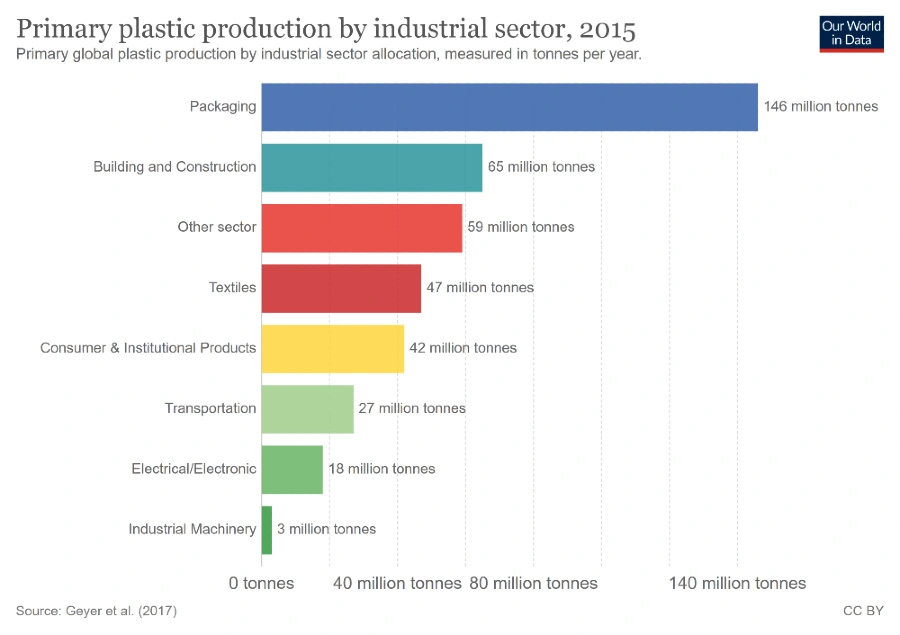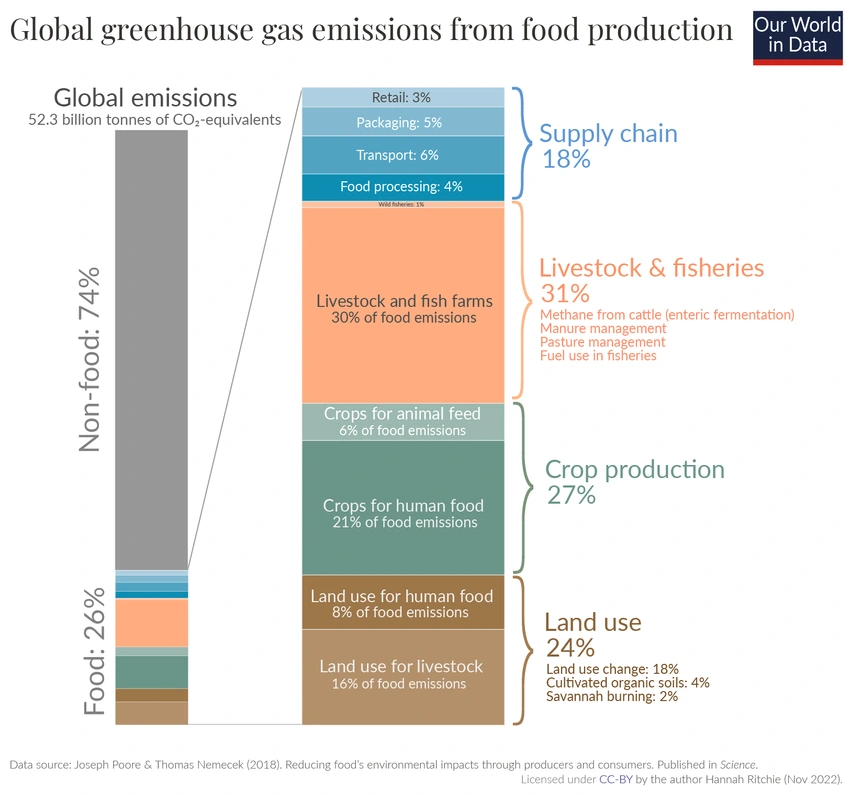The journey from farm to table isn’t always a straight line, especially when it comes to processed foods. These foods, which dominate modern diets, carry with them an environmental footprint that extends far beyond the kitchen. Understanding the ecological costs of processed foods and adopting more sustainable eating habits is crucial for the health of our planet and ourselves.
Unwrapping the Issue: The Environmental Toll of Packaging
Packaging waste is one of the most visible environmental impacts of processed foods. The convenience of packaged goods comes at the cost of increased waste that often ends up in landfills. According to the Environmental Protection Agency (EPA), containers and packaging make up a significant portion of municipal solid waste in the US, amounting to 82.2 million tons in 2018 alone.
That number isn’t getting smaller!
Plastic packaging, which is particularly prevalent in processed foods, can take hundreds of years to decompose. It often contains complex polymers that aren’t biodegradable. The production of this packaging further contributes to the depletion of non-renewable resources, such as petroleum, and the emission of greenhouse gases.
Let’s take a quick look at the global plastic production by industry…
The Hidden Costs: Resource Intensive Manufacturing
The manufacturing of processed foods is resource-intensive, requiring large amounts of energy, water, and chemicals.
For instance, the processing of raw materials into food products typically involves several stages that consume energy, from initial treatment to various cooking methods like baking or frying, and finally to freezing or refrigeration.
Water usage is another concern.
The Water Footprint Network indicates that processed foods, particularly meat products, have a higher water footprint than whole foods. This is because they require additional water for cooking and processing beyond what’s used in agricultural production.
Eco-Friendly Eating: A Healthier Choice for the Environment
Transitioning to eco-friendly eating habits isn’t just good for the environment; it can also lead to a healthier diet. Here are some suggestions to help reduce the ecological impact of our food choices:
- Choose Locally Sourced Foods: Opting for local produce reduces the need for long-distance transportation, cutting down on carbon emissions. It also supports local economies and promotes seasonal eating, which can be more nutritious and flavorful.

- Embrace Seasonal Eating: Seasonal foods don’t require the same level of energy inputs for production and storage as off-season or imported foods. They’re often fresher and packed with more nutrients.
- Reduce Meat Consumption: The production of meat, particularly processed meat, is highly energy-intensive. Reducing meat consumption, particularly beef, can significantly lower your dietary carbon footprint. Consider trying other sources of red meat.
- Minimize Food Waste: Plan meals and buy only what you need to reduce the amount of food that goes to waste. Composting organic waste is another way to lessen the impact on landfills.
- DIY Cooking: Making meals from scratch reduces reliance on heavily packaged processed foods and gives you control over ingredients, creating less waste and a healthier meal.
The Data Speaks Volumes
Research has consistently shown that processed foods have a larger environmental impact than whole foods. A study from the Journal of Cleaner Production in 2020 concluded that diets high in processed foods, meat, and dairy products are associated with higher greenhouse gas emissions than diets rich in fruits, vegetables, and plant-based proteins.
More To Discover
Conclusion: A Call to Action
By understanding the environmental implications of our food choices and making more sustainable decisions, we can all contribute to a healthier planet. It’s a powerful act, one that nurtures not just the earth, but also our own bodies. As consumers, we have the opportunity—and responsibility—to choose foods that are kind to our environment and beneficial to our health.

















